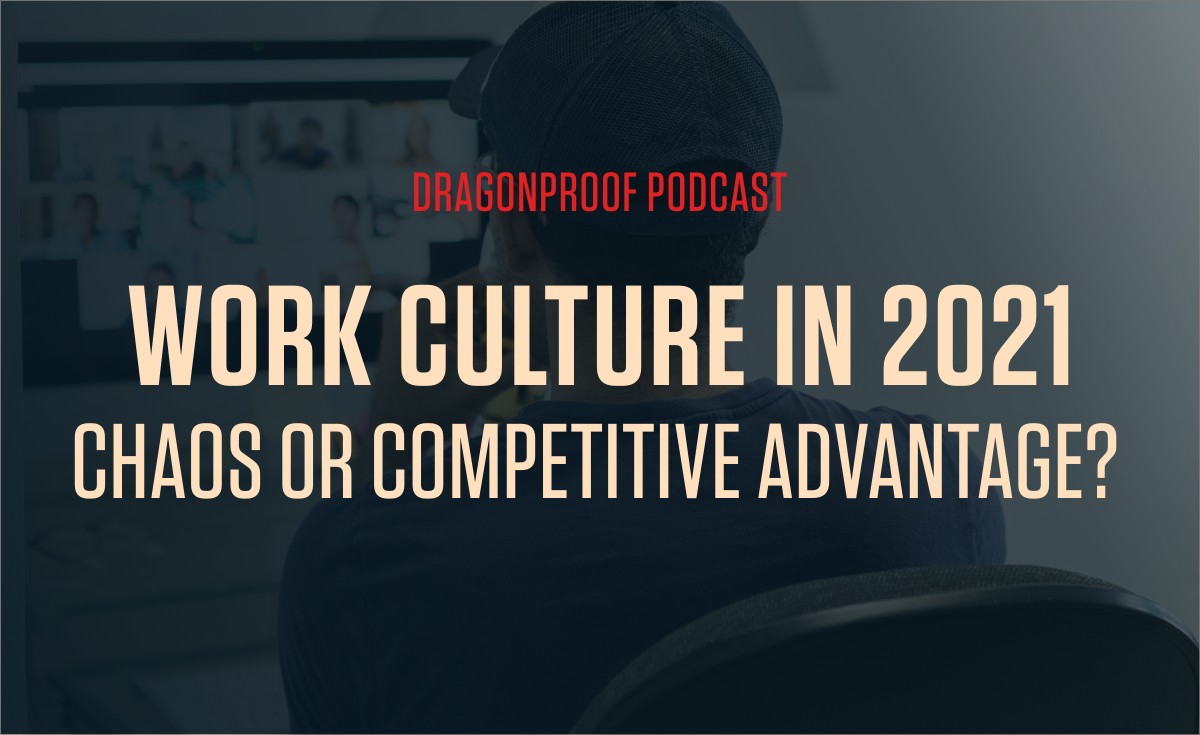By Miva | September 22, 2021

See why top ecommerce brands use Miva’s no-code platform to run
multiple stores, manage massive catalogs, and grow their revenue.
The role of remote work as a permanent part of US businesses has solidified in 2021. More than double the number of work-from-home employees are expected this year compared to pre-pandemic levels, as the trend grows toward as much as 75% of the entire workforce going remote by 2025. As Rick Wilson describes the trend on the new Dragonproof Podcast, “Like the famous saying, things often go slow, then fast. The shift to remote has been predicted in our industry for 20 years, and it has finally come to fruition, quickly.”
Extensive surveying shows that workers on the whole prefer working remotely for practical benefits like schedule flexibility and Covid safety, with large numbers of employees stating they would look for new workplaces immediately if they were asked to return to offices.
On the employer side, businesses facing a tight 2021 labor market are simultaneously finding a full return to physical work costly and unpredictable. Approaches vary...digital media platforms like Facebook and Twitter have indicated that their remote work programs will run indefinitely. Meanwhile, conventional financial institutions like JP Morgan Chase and Goldman Sachs are insisting that thousands of workers return to offices. Everyday US companies are generally embracing some form of remote, with an 18% increase this year in the number of workdays per week which workers can perform from home.
Rick explains that there are more factors for employers to consider though than just logistics and office costs.
“Today,” Rick says, “culture is the new office. Family, spirituality, schooling, now all meld in the same physical space as your work. As business leaders, we are responsible for building structures, support, and boundaries to make this functional.”
A positive work culture for a remote workforce transcends short-term savings to become a true competitive advantage for businesses. The ability to draw from “distributed talent” from anywhere across the globe means enhanced opportunity and access for workers and employers alike. Retaining that talent requires building an environment that is appealing to workers...even if it’s virtual.
“Good culture is a long-term philosophical investment designed to pay permanent dividends,” Rick says. “Culture requires leaders to be engaged, authentic, and reflective.”
With unemployment numbers continuing to drop nationwide, building appealing culture is paramount. Moves like Google’s controversial policy to dock the salary of any remote worker who relocates to a city with lower labor costs are short-sighted cost-cutting solutions which may cost worker loyalty in the end.
“To a certain extent all companies are subject to the fluctuations of the labor market,” Rick notes, “but labor in the larger sense is truly separate from culture, in that you can create a great culture, all on your own. You just have to focus on it, and you can make your company a great place to work.”
To hear more of Rick’s thoughts on the value of building positive work culture, please visit: https://dragonproofbook.com/podcast.
Back to topNo worries, download the PDF version now and enjoy your reading later...
Download PDF Miva
Miva
Miva offers a flexible and adaptable ecommerce platform that evolves with businesses and allows them to drive sales, maximize average order value, cut overhead costs, and increase revenue. Miva has been helping businesses realize their ecommerce potential for over 20 years and empowering retail, wholesale, and direct-to-consumer sellers across all industries to transform their business through ecommerce.
Visit Website